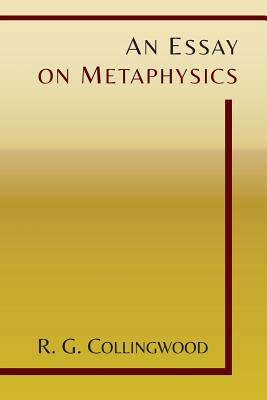
- Afhalen na 1 uur in een winkel met voorraad
- Gratis thuislevering in België vanaf € 30
- Ruim aanbod met 7 miljoen producten
- Afhalen na 1 uur in een winkel met voorraad
- Gratis thuislevering in België vanaf € 30
- Ruim aanbod met 7 miljoen producten
Zoeken
Omschrijving
2014 Reprint of 1940 Edition. Full facsimile of the original edition, not reproduced with Optical Recognition Software. One of Collingwood's finest works, "Essay on Metaphysics" considers the nature of philosophy, and puts forward Collingwood's original and influential theories of causation, presuppositions, and the logic of question and answer. From the mid-thirties onwards Collingwood's work increasingly engaged in a dialogue with the newly emerging school of analytic philosophy. In this work he attacked the neo-empiricist assumptions prevalent in early analytic philosophy and advocated a logical/epistemological transformation of metaphysics from a study of being or ontology to a study of the absolute presuppositions or heuristic principles which govern different forms of enquiry. Collingwood thus occupies a distinctive position in the history of British philosophy in the first half of the 20th century. He rejects equally the neo-empiricist assumptions that prevailed in early analytic philosophy and the kind of metaphysics that the analytical school sought to overthrow.
Specificaties
Betrokkenen
- Auteur(s):
- Uitgeverij:
Inhoud
- Aantal bladzijden:
- 366
- Taal:
- Engels
Eigenschappen
- Productcode (EAN):
- 9781614276159
- Verschijningsdatum:
- 15/04/2014
- Uitvoering:
- Paperback
- Formaat:
- Trade paperback (VS)
- Afmetingen:
- 156 mm x 234 mm
- Gewicht:
- 562 g

Alleen bij Standaard Boekhandel
+ 51 punten op je klantenkaart van Standaard Boekhandel
Beoordelingen
We publiceren alleen reviews die voldoen aan de voorwaarden voor reviews. Bekijk onze voorwaarden voor reviews.








